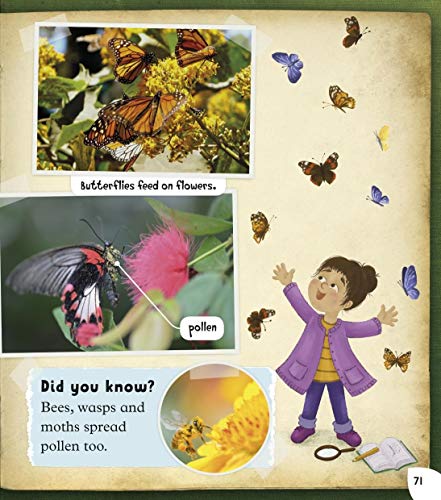For young children, practise is key to keeping their emerging understanding of how numbers work at their fingertips.
In this post, I have pulled together my top 5 games, collected from a variety of people and places, and tried and tested on my own children! If played regularly over time, they will help your child get to know their number facts.
1. Count all and Count on
These games can help your child practise counting up to 12.
For Count all, you will need two dice with spots. If you don’t have any, you can adapt a numbered dice by putting stickers over the numbers and drawing dots from 1–6. Take it in turns to roll the dice and count the spots to find the total. This will help your child to recognise patterns and to accurately count items that cannot be moved.
Once your child is familiar with this, you can try Count on. You will need to use two dice: one dotty die, and one die with numbers. Take it in turns to roll both dice. Start with the numbered dice, then count on the number of spots shown. This will help your child connect the number symbols with the quantity they represent.
For more help with counting, why not try this simple Numicon activity:
Video: Counting with Numicon
2. Bunny Rabbit Ears
This game will help your child learn the number bonds within 10. It is ideal for two or more players (my twins used to love playing this in the car!).
The first player says, ‘Bunny rabbit ears…’ and then a number between 1 and 10. Both players then make that number using their fingers as quickly as possible and put them on their head – like ears – to show the other players. For example, ‘Bunny rabbit ears five’ could result in the combinations 0 + 5, 1 + 4, 2 + 3, or the reverse.
As children get used to playing, encourage them to play without looking, keeping their hands in position. This encourages them to visualise and develop mental calculation skills.
3. Memory for 10!
This is a game for two or more players, and it practises adding within 10.
You will need these playing cards: one Ace (to use as a 1), one of each number card 2–9, and two 5s. Shuffle the cards and place them face down on a table in two rows. The first player turns over a card and says what number is needed to make a total of 10, before turning over another card.
If the total makes 10, they keep the cards. If the cards do not total 10, turn both cards back over and the second player has a turn. Continue playing until all the pairs to 10 are found. The winner is the player with the most cards when they have all been picked up.
4. What’s in the bag?
This simple game for two or more children practises adding and subtracting within 10. You can extend the range up to 20 if your child is good at it!
Put 10 of the same item (for example, building bricks, stones, or small figurines) in a bag or under a piece of cloth. One player takes out some items and puts them on the table for the other player to see. They then have to work out how many items are still in the bag.
Put some of the items back in the bag. Say how many are in the bag now. Take it in turns to take items out of the bag, with the other player saying how many are left.
5. Place Value Uno
Play this game with Uno cards (or normal playing cards with the face cards removed).
Each player has 2 or 3 piles, depending on if you are working on 10s or 100s. They must turn over the top card from each pile. The players must all say the resulting numbers out loud. For example, for a 6 and a 3, the player would say ‘sixty three’.
The player with the highest number wins the cards. For a fun variation, allow players to use the cards they turn over to create the highest possible number.
Video playlist: Maths games
More from Oxford Owl
- Web page: Fun maths games and activities
- Web page: Numicon guide for parents
- Blog: Five ways to improve maths home learning
- Blog: Times tables: Practise makes perfect
- PDF: Character cards

